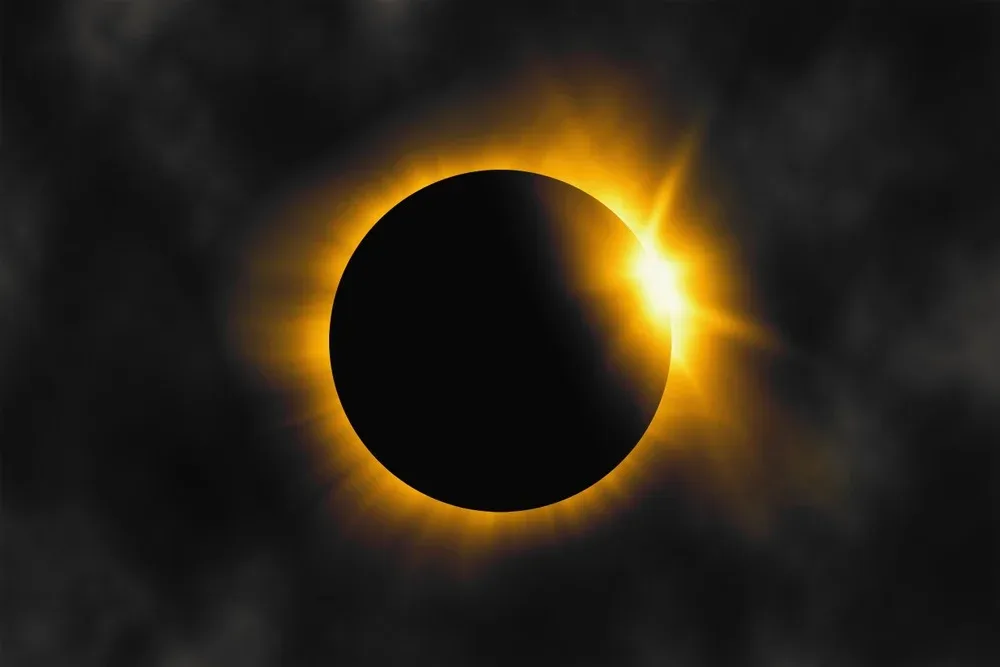
On Monday, April 8, 2024, North America’s skies will witness a remarkable celestial event: a total solar eclipse. This rare phenomenon occurs when the moon aligns perfectly between the sun and the Earth, casting a shadow on our planet and temporarily obscuring the sun from view.
This article explores the specifics of this upcoming solar eclipse 2024, including where and when it will be visible, safety precautions to observe, and resources for further information.
Contents
The Solar Eclipse 2024: A Brief Overview
As celestial events go, few capture the imagination and awe of humanity quite like a solar eclipse. In 2024, skygazers across North America will be treated to a rare spectacle as the moon aligns perfectly with the sun, casting a shadow across the Earth in what promises to be a mesmerizing display of cosmic choreography.
This brief overview aims to delve into the science behind this phenomenon, explore its historical significance, and provide practical tips for witnessing this once-in-a-lifetime event. Join us as we journey through space and time to unravel the mysteries of the 2024 solar eclipse.
What is a Solar Eclipse?
A solar eclipse occurs when the moon passes between the sun and the Earth, blocking all or part of the sun’s light. There are three solar eclipses: total, partial, and annular. In a total eclipse, the sun is completely obscured by the moon, creating a breathtaking sight known as the “totality.”
When Is the Solar Eclipse 2024?
What time is the solar eclipse today? The solar eclipse in California on April 8, 2024, will be visible from North America. In Irvine, California, observers will witness a partial solar eclipse with approximately 59 percent coverage. The eclipse will commence at 10:05 a.m. local time, reach its maximum coverage at 11:12 a.m., and conclude at 12:22 p.m.
Unique Opportunity
This event presents a unique opportunity to engage with science and astronomy, particularly for children. Observing the intricate dance between the Earth, moon, and sun can spark curiosity and foster a deeper understanding of our place in the universe.
Safety Precautions
Welcome to our guide on staying safe while viewing a solar eclipse. It’s crucial to protect your eyes during this exciting event. We’ll cover important safety tips, like using certified eclipse glasses and solar filters for optical devices, to ensure your viewing experience is both enjoyable and risk-free.
Protecting Your Eyes
It’s crucial to prioritize safety when viewing a solar eclipse. Looking directly at the sun, even during an eclipse, can cause permanent eye damage. Follow these guidelines to safeguard your vision:
Use Certified Eclipse Glasses
Ensure that your eclipse glasses meet ISO 12312-2:2015 standards. These glasses provide adequate protection against the sun’s harmful rays. Regular sunglasses are not sufficient for viewing an eclipse.
Utilize Solar Filters
If cameras, binoculars, or telescopes are used to observe the eclipse, affix proper solar filters to the front of the optics. Failure to do so can result in severe eye injury.
Explore Indirect Viewing Methods
Consider safer alternatives, such as a pinhole projector, to indirectly observe the eclipse without risking eye damage.
Beware of Counterfeit Glasses
With the surge in popularity surrounding eclipses, counterfeit eclipse glasses have become a concern. For a list of verified vendors, refer to reputable sources, such as the American Astronomical Society.
Educational Resources
Explore educational resources dedicated to the 2024 Solar Eclipse. NASA’s webpage offers information, live streams, and tools. The National Science Teaching Association provides guides and activities for educators and parents. Explore these resources to enhance your eclipse experience.
NASA’s 2024 Solar Eclipse Webpage
Visit NASA’s dedicated webpage for comprehensive information and updates regarding the upcoming eclipse. Explore educational materials, live streams, and interactive tools to enhance your eclipse experience.
National Science Teaching Association
Educators and parents can access valuable guides and resources on the NSTA webpage. Engage students with lesson plans, activities, and articles related to eclipses and astronomy.
PBS Eclipse Resources
PBS offers many eclipse resources and events, including educational toolkits tailored for families. Through PBS Eclipse Resources, you can explore engaging content designed to make learning about eclipses fun and accessible.
FAQs
Can I use regular sunglasses to view the solar eclipse?
No, regular sunglasses do not provide sufficient protection against the sun’s harmful rays. Certified eclipse glasses meeting ISO standards are essential for safe viewing.
What should I do if I don't have eclipse glasses?
To safely observe the eclipse without looking directly at the sun, Consider using indirect viewing methods, such as a pinhole projector.
How often do solar eclipses occur?
Solar eclipses occur approximately every 18 months somewhere on Earth. Still, the path of totality for each eclipse is relatively narrow.
Will IUSD schools provide eclipse glasses for students?
While IUSD schools may take precautions, parents should ensure their children have certified eclipse glasses for safe viewing.
Where can I find more information about the 2024 solar eclipse?
For comprehensive information, safety tips, and educational resources, Explore reputable sources such as NASA, the National Science Teaching Association, and PBS.
Conclusion
The solar eclipse on April 8, 2024, promises to be a spectacular event that captivates audiences across North America. Whether you’re a seasoned stargazer or a curious novice, take this opportunity to marvel at the wonders of our universe safely.
By following proper safety protocols and utilizing educational resources, you can make the most of this celestial spectacle and deepen your appreciation for the cosmos. Contact DeeCyDa Daycare to learn how we incorporate astronomy and science into our curriculum, nurturing young minds to explore the wonders of the universe.

